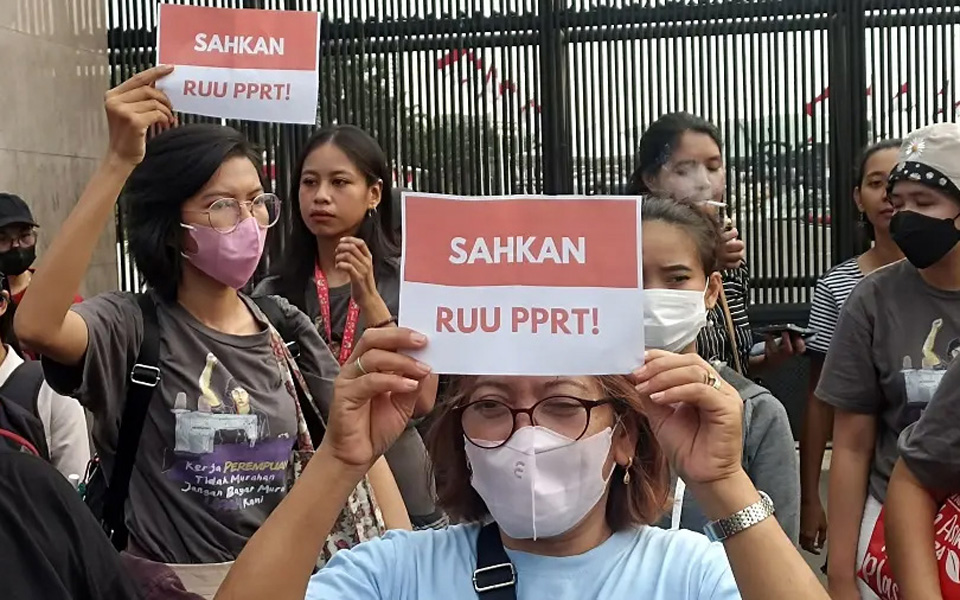Irwan Nugroho, Jakarta – Some 25 artists from the Nyai Ontosoroh1 Theater held a peaceful action at the Hotel Indonesia roundabout in Central Jakarta today. The action was held in conjunction with the commemoration of Hari Kartini2 that falls on Saturday April 21.
Throughout the action, the demonstrators who wore red T-shirts repeatedly shouted “Viva women, viva women”. “We want to articulated justice and the war against women’s ignorance that persists to this day”, said one of the participants, Tita, when speaking with Detik.com on Friday April 20.
Tita said that the peaceful action by the theater group was to make the public realise that women are still repressed. According to Tita, the various kinds of discrimination that Kartini herself fought against such as domestic violence and polygamy still beset women.
“The trafficking of women is becoming more widespread. Women’s levels of education are still low”, added Tita.
A red-and-white banner measuring 1x5 meters with the words “Fighting spirit” was visible among the protesters. The action that had been going on since 10am proceeded in an orderly fashion and without police escort.
In addition to giving speeches, they also handed out red stickers with the words “Fighting spirit” to passing drivers. As a result of the action, there was a slight disruption to traffic in the vicinity of the Hotel Indonesia roundabout. (rmd/nrl)
Notes:
1. Nyai Ontosoroh – A central character in Pramoedya Ananta Toer’s Buru Quartet that tells the story of a 14-year-old Javanese girl, Sanikem, sold by her money-grubbing father to a Dutch plantation owner as a concubine and how this young girl transformed herself into a women of strength and capacity, Nyai Ontosoroh – far superior to that of her coloniser – and how she educated the first generation of Indonesian revolutionaries.
2. Hari Kartini – Kartini was an Indonesian regent’s daughter during the Dutch colonial period who, through her letters home, outlined her dreams for better education. She died aged 25 a few days after giving birth to her first child. A variety of myths have made the original Kartini a nationalist hero and feminist symbol. Hari Kartini (Kartini Day) is a public holiday dedicated to the memory of the turn-of-the-century hero.
[Translated by James Balowski.]















